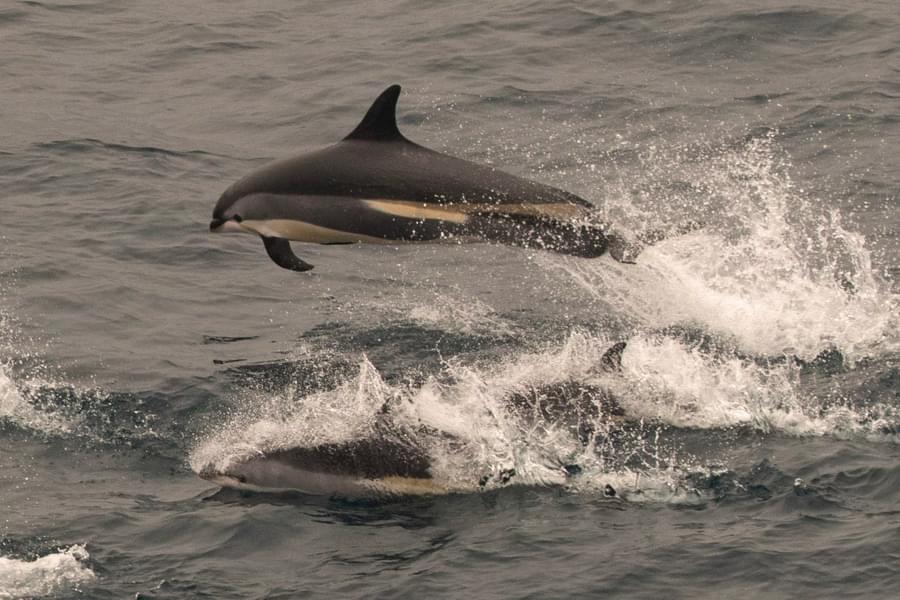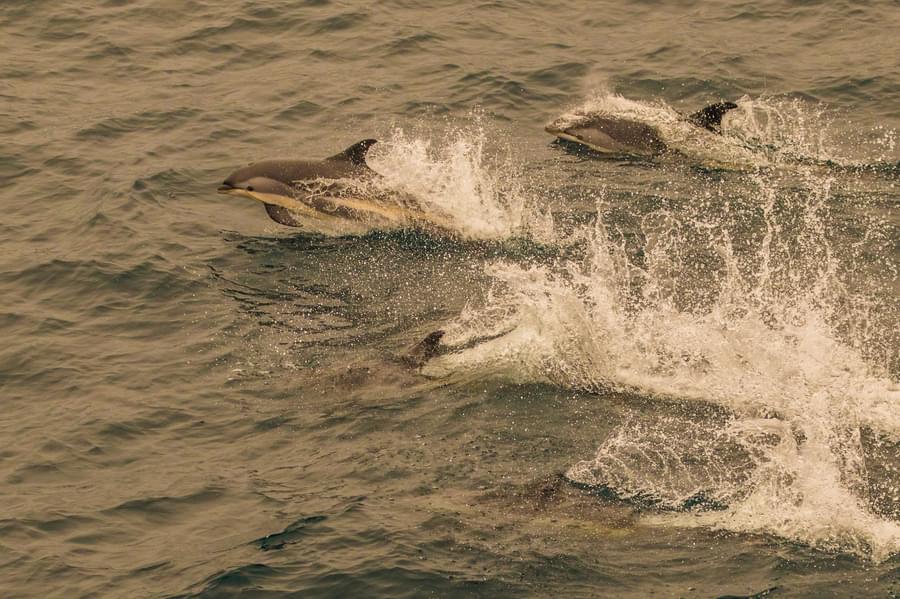Atlantic white-sided dolphin

Lagenorhynchus acutus
2 - 2.8m
Yellow and grey
Teeth
Dorsal fin
Atlantic white-sided dolphins are robust and have an abnormally thick tailstock. They have a distinct colour pattern; a dark back and dorsal fin, grey sides and white underbelly. They also have a thin white stripe along their flank, which goes to a yellow-tan colour on the tail stock. They have a slopping head and a tall curved dorsal fin.
Key features:
- Slender head and short beak
- Tall, dark, falcate dorsal fin
- Distinctive yellow, grey and white patterned flanks
- Highly energetic and acrobatic
Behaviour
The Atlantic white-sided dolphin is a fast swimmer revealing only their upper back as they pass through the water. They are also known for their acrobatics, often exhibiting exuberant breaching and tail-slapping displays. They are sociable dolphins that like to hang out with large whales, riding in their bow waves. The are found in groups of 1-15 individuals, but huge aggregations occur in deep offshore waters.
Threats
The major threats facing the Atlantic white-sided dolphin include entanglement in fishing gear, being caught as bycatch and the overfishing of their prey. They appear to be particularly susceptible to entanglement in mid-water trawls. Atlantic white-sided dolphins are hunted for their meat in several locations throughout their range, including in the Faroe Islands and Greenland. Like other dolphin species they are also threatened by the effects of pollution and climate change throughout their range.
Distribution
The range of the Atlantic white-sided dolphin is similar to the white-beaked dolphin; it’s confined to the cool temperate and sub-arctic waters of the North Atlantic especially over the continental shelf and slope.

Study whales and dolphins as an ORCA OceanWatcher
The ORCA OceanWatchers online training course, along with a bespoke app, will enable everyone to collect data about whales, dolphins and porpoises. And it can be collected from anywhere that you can see the sea - whether that’s from your local beach, on holiday at the coast, scanning the seas from a cruise ship, travelling via ferry, or from your own boat.
You may also be interested in







